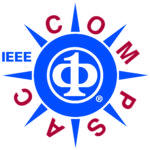SCA 2023: The 6th IEEE International Workshop on Smart Computing & Applications
Technical Program
*= in-person presentation in Torino
Contract Text Markup Language (CTML): Towards Annotating and Extracting Textual Legal Contracts Suited for Smart Legal Contracts
Yu Qing Fan, E Chen, Yan Zhu, Xiao He, Shu Qin Zhang, Stephen Yau and William Chu
Goal of the workshop:
Computer technologies are producing profound changes in society. As COMPSAC 2023 focus on technical aspects related to the” Resilient Computing and Computing for Resilience in a Sustainable Cyber-Physical World”. The SCA 2023 workshop aims to foster cooperation among software practitioners and researchers to exchange the latest industrial experience and research ideas on Smart Computing and Applications related issues.
Workshop theme:
The area of processes and services engineering is a very attractive field for smart computing and applications research. Smart computing and applications are those applications that incorporate data-driven, actionable insights into the user experience. Insights of delivered in context as features in applications that enable users to more efficiently complete a desired task or action.
Smart computing and application become a popular paradigm for both consumer facing and employee facing.
SCA 2023 will address the technical challenges facing technologists who are developing and deploying these smart systems and applications.
Scope of the workshop:
Researchers and practitioners all over the world, from both academia and industry, working in the areas of smart computing and application are invited to discuss state of the art solutions, novel issues, recent developments, applications, methodologies, techniques, experience reports, and tools for the development and use of smart computing and application. Topics of interest include, but are not limited to, the following:
• Design and development of Smart computing and applications.
• Software Engineering of Smart computing and applications.
• Tool Set Design for Smart computing and applications.
• Smart computing and application development experience.
• Trust, security, and privacy in Smart computing and application systems.
• Verification, validation and testing of Smart computing and applications
• Other research issues about Smart computing and applications
Paper Templates
IEEE Paper templates are available in MS Word 2003 and LaTex. All submissions must use US 8.5×11 letter page format.
Important Dates
Main Conference/Symposium
Main conference/symposium papers due: 15 January 2023Extended to 15 February 2023
Notification: 7 April 2023
Camera-ready and registration due: 7 May 2023 Updated: 18 May 2023
Journal then Conference Submissions
Due date: April 7, 2023
Notifications: April 30, 2023
Workshops, Fast Abstract, SRS Programs
EXTENDED: Workshop papers due: 21 April 2023
UPDATED: Notifications: 7 May 2023
UPDATED: Camera-ready and registration due: Updated: 18 May 2023
Submission Link
Please submit your paper on EasyChair
IEEE Conference Publishing Policies
All submissions must adhere to IEEE Conference Publishing Policies.
IEEE Cross Check
All submission will be screened for plagiarized material through the IEEE Cross Check portal.
Workshop Organizers
William Cheng-Chung Chu
Department of Computer Science, Tunghai University, Taiwan
Email: cchu@thu.edu.tw
Chih-Hung Chang
Department of Computer Science and Communication Engineering, Providence University, Taiwan
Email: ch.chang@gm.pu.edu.tw
Tse-Chuan Hsu
Department of Information Management, Soochow University, Taiwan
Email: tchsu@scu.edu.tw
Program Committee
Sheikh Iqbal Ahamed, Marquette University, USA
Osman Gani, Miami University, USA
Nien-Lin Hsueh, Feng Chia University, Taiwan
Chin-Yu Huang, National Tsing Hua University, Taiwan
Che-Lun Hung, National Yang Ming Chiao Tung University, Taiwan
P. Kuppusamy, Madanapalle Institute of Technology & Science, India
Wen-Tin Lee, National Kaohsiung Normal University, Taiwan
Zhijun Liu, Providence University, Taiwan
Shang-Pin Ma, National Taiwan Ocean University, Taiwan
Geyong Min, University of Exeter, UK
Chuan Yi Tang, Providence University, Taiwan
Yin-Te Tasi, Providence University, Taiwan
Feng-Jian Wang, National Yang Ming Chiao Tung University, Taiwan
W. Eric Wong, University of Texas at Dallas, USA
Dianxiang Xu, Boise State University, USA
Hongji Yang, University of Leicester, UK
Chao-Tung Yang, Tunghai University, Taiwan
I-Ling Yen, University of Texas at Dallas, USA
Hong Zhu, Oxford Brookes University, UK
Yan Zhu, University of Science and Technology Beijing, China

